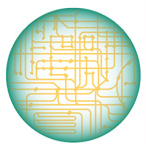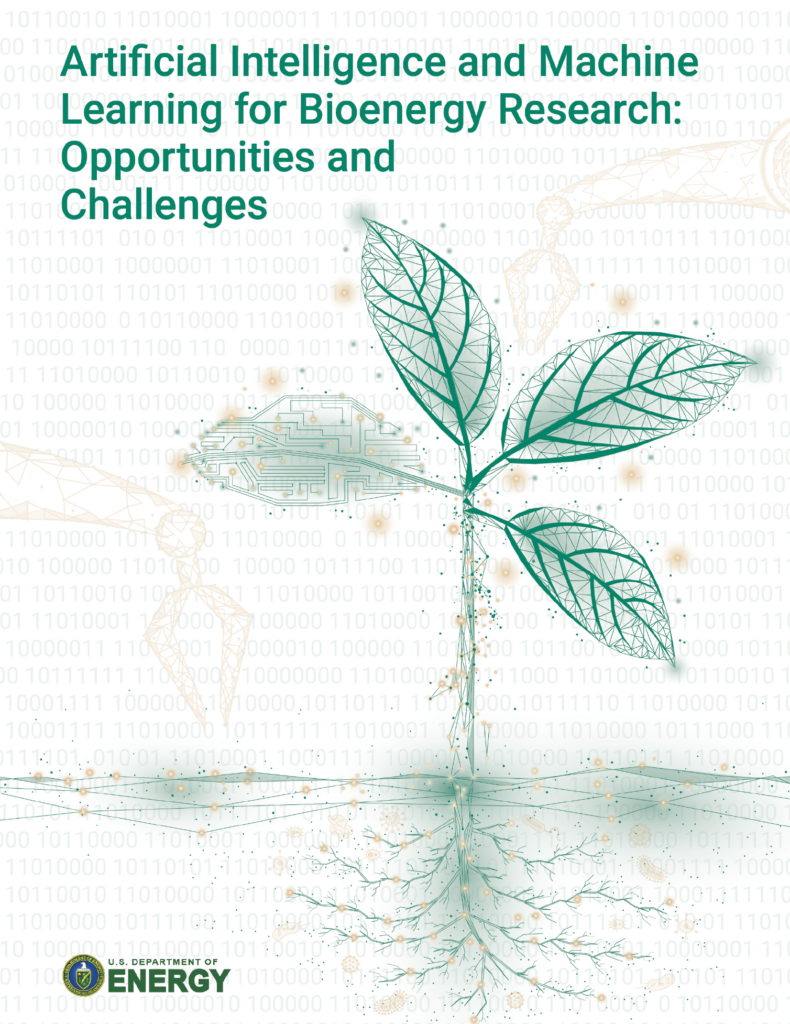Artificial Intelligence and Machine Learning for Bioenergy Research: Opportunities and Challenges
- Print Publication: April 2023
- Report Download: Fast-download PDF
- Report Download: Print-quality PDF
The integration of artificial intelligence and machine learning (AI/ML) with automated experimentation, genomics, biosystems design, and bioprocessing represents a new data-driven research paradigm poised to revolutionize scientific investigation and, particularly, bioenergy research. To identify the opportunities and challenges in this emerging research area, the U.S. Department of Energy’s (DOE) Biological and Environmental Research program (BER) and Bioenergy Technologies Office (BETO) held a joint virtual workshop on AI/ML for Bioenergy Research (AMBER) on August 23–25, 2022.
Approximately 50 scientists with various expertise from academia, industry, and DOE national laboratories met to assess the current and future potential for AI/ML and laboratory automation to advance biological understanding and engineering. They particularly examined how integrating AI/ML tools with laboratory automation could accelerate biosystems design and optimize biomanufacturing for a variety of DOE mission needs in energy and the environment.
Workshop participants identified the data and computational infrastructure needed to for integrated systems; the expertise and workforce development efforts urgently required to shift integrated systems toward bioenergy research more broadly; applications of AI/ML for biosystems design including enzymes, plants and microbes, microbiomes, and bioprocess development; and three key categories of scientific and technical opportunities and challenges, including high-quality data, AI/ML algorithms, and laboratory automation.
Several main takeaways emerged from the workshop:
- Numerous AI/ML and automated experimentation applications exist for a variety of DOE mission needs in energy and the environment.
- Exemplary research grand challenges for which AI/ML could provide solutions include: building microbes and microbial communities to specifications, developing closed-loop autonomous design and control for biosystems design, and advancing scale-up and automation.
- AI/ML tool development and application lacks sufficient high-quality, annotated data.
- New and improved AI/ML tools are needed, particularly those meeting the specific needs of the BER and BETO research communities.
- Trade-offs in performance, cost, and reliability exist between deploying commercially available versus building custom-developed instrumentation and software for automated or autonomous experimentation; translation of manual to automated or autonomous methods is often a non-trivial endeavor.
- Training a new generation of young scientists who can develop and apply AI/ML tools is needed to solve long-standing scientific challenges in bioenergy research.
Suggested Citation: U.S. DOE. 2023. Artificial Intelligence and Machine Learning for Bioenergy Research: Opportunities and Challenges, DOE/SC-0211. U.S. Department of Energy Office of Science and Office of Energy Efficiency and Renewable Energy. https://doi.org/10.2172/1968870.

